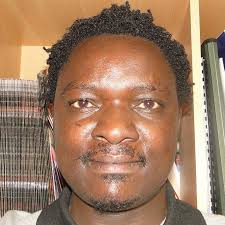
A better world for all is possible. The disgusting opulence of a few people amidst mass suffering is not the natural order of things. But true change will only happen after the spirit of resistance is awakened among the oppressed people. That is the legacy of Hugo Chavez, Chris Hani and Martin Luther King
This issue of Pambazuka News focuses on Hugo Chavez, the fallen socialist revolutionary leader of Venezuela whom, no doubt, the capitalist West and their toadies in the rest of the world would like to forget in a hurry.
But it will not happen. Chavez is a hero to many. For one, he could name the devil outright when he saw him…
In a world saturated by statist propaganda, Chavez has stood out as a refreshing and constant reminder to thieves and oppressors masquerading as statesmen/women around the globe – who have perfected the evil art of feeding their citizens on empty hope – that it is possible to re-arrange public affairs differently for the good of all the people.
Chavez has shown that socialism works in the 21st century. He is a great inspiration to progressive peoples and movements everywhere who are struggling to wrest power from hegemonic classes and restore human dignity to all.
Yet this excellent collection of articles is much more than a sentimental expression of gratitude to Chavez for his courage and vision. These thought-provoking articles are meant to take the socialist anti-imperialist struggle forward. They should provoke deeper reflection and inspire a new resolve among people who are committed to creating a better world.
Today, much of the mainstream discourse about politics in the global South still revolves around the notion of ‘good governance.’ The chief priests of this doctrine preach that all that is required for people to enjoy true freedom, equality and a better life is implementation of a raft of democratic ‘reforms’ – even when there is enough evidence that such ‘reforms’ have not yielded any meaningful fruits for most people in countries considered as thriving democracies.
Chavez’ work in Venezuela in 14 years particularly challenges the myth of ‘good governance’. It is a call for people everywhere to organise and fight for fundamental changes in power relations.
But what would critics of state socialism, anarchists especially, think of Chavez’ work? There is a limit to what can be achieved for and with the people under state socialism – and there is always the grave risk of slipping into despotism – as the examples of former socialist states in Africa and the rest of the world attest. Could Chavez have achieved more in those 14 years without the strictures of the state? Do we still need this hierarchical and authoritarian political monster, which is premised on the so-called representative democracy (a cycle of often sham elections, basically) and which pursues its agenda, not by popular will, but by laws, courts, prisons, police and other instruments of coercion that mostly target the poor?
We have carried other articles in this issue that are not about Chavez. They, however, explore the same theme of power to the people.
For example, Philip Rizk who has evidently watched with growing despair as the new ‘pharaohs’ of Egypt consolidate power and trample on the aspirations of the anti-Mubarak ‘revolution’ suggests, quite boldly, that the time has probably come to consider unleashing revolutionary violence to bring about lasting desired change.
Well, if you are surprised by this loud call to a more radical engagement with the powers-that-be, then you should not skip Carlos Martinez’ article marking the 20th anniversary of the assassination of Chris Hani, leader of the people’s armed struggle against apartheid South Africa. Hani’s understanding of revolutionary violence is something to chew on.
As fate would have it, the assassination of Hani and that of the revered Black civil rights icon Martin Luther King happened in the same month of April, 25 years apart. Commemorating Dr King’s murder, Ajamu Baraka points out that the US government has over the years endeavoured to sever King from the black movement for social justice that produced him, and to transform his oppositional stances into a de-radicalized, liberal, integrationist dream narrative.
Unsurprisingly, this diabolical scheme has been going on in many parts of Africa for decades. The official narratives about leading nationalist and pan-Africanist s/heroes are usually so sanitised that their radical thoughts are hardly known by most citizens. The idea is to ensure the narratives do not inspire new resistances to the oppression and obscene comforts of the privileged classes.
This scheme seems to have succeeded, for far too many people in Africa and the global South hardly politicise the poverty and oppression they see around them. People appear to have concluded that their miserable place at the foot of the table, below their predatory elite gorging themselves on the fat of the land, is the will of God.
No, it is not. This is the stark evidence of grand thievery and exclusion by those in power.
The spirit of resistance against this dismal state of affairs needs to be awakened among the oppressed and, where it already exists, emboldened. More and more people, especially the youth, need to be radicalised. Building and strengthening people’s movements to break the chokehold of the 1 percent is urgent.
That is the legacy of Hugo Chavez to the peoples of the South. It is all there in his February 2013 letter to Africa, which reveals the lucidity of his thought and his passionate adherence to his convictions despite the pain of terminal illness - there are good grounds to believe the thoughts in that letter are entirely his.
As Chavez liked to quote his revolutionary hero Simón Bolívar: ‘We cannot expect anything, if not from ourselves.’
There. Dare to resist oppression today and everyday!
* Henry Makori is an editor with Pambazuka News.
- Log in to post comments
- 1549 reads




































